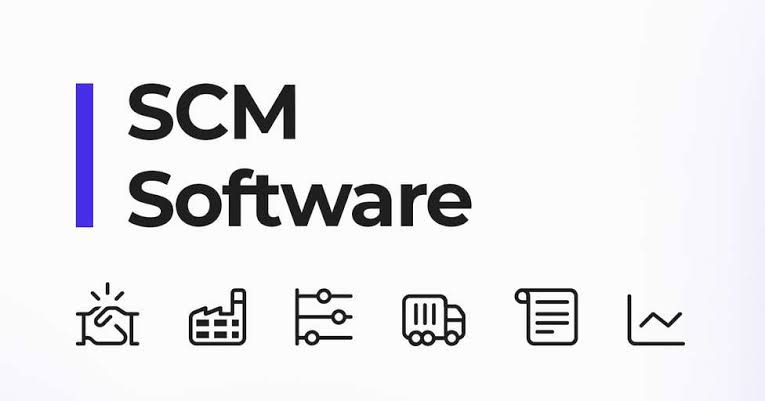In an increasingly digital and interconnected global economy, supply chain resilience and agility are non-negotiable.
Top 10 Supply Chain Management (SCM) Software
As of June 2025, the landscape of supply chain management has evolved significantly. Companies are navigating increasingly complex logistics networks, global disruptions, and rising customer expectations. The need for robust, agile, and intelligent supply chain solutions has never been more critical. Supply chain management software has become an indispensable tool for optimizing operations, forecasting demand, enhancing visibility, managing risks, and ensuring timely delivery across industries. From manufacturing and retail to pharmaceuticals and technology, these platforms help organizations achieve operational excellence. Below is a detailed review of the top ten supply chain management software solutions currently leading the market in 2025.
10. Infor Supply Chain Management
Infor SCM is recognized for its strong industry-specific capabilities and deep analytics. Designed for companies in manufacturing, healthcare, and retail, Infor offers a cloud-based suite that includes supply planning, demand management, warehouse management, and transportation optimization. In 2025, Infor's latest update features enhanced AI-powered demand forecasting and IoT integration for real-time visibility into supply networks. Its flexible architecture allows customization for large enterprises while maintaining usability across mid-sized firms.
9. Blue Yonder (formerly JDA Software)
Blue Yonder continues to be a major player in predictive supply chain solutions. Leveraging machine learning and AI, Blue Yonder’s platform offers end-to-end planning and fulfillment capabilities. Their autonomous supply chain strategy emphasizes minimal human intervention, using algorithms that adapt to market changes, disruptions, or consumer behavior. In 2025, Blue Yonder has expanded its sustainability dashboard to help companies track carbon emissions, ethical sourcing, and waste reduction across the supply chain.
8. Kinaxis RapidResponse
Kinaxis is best known for its speed and agility in supply chain decision-making. The RapidResponse platform offers scenario planning, supply and demand synchronization, and real-time collaboration tools that allow businesses to respond quickly to changes. Its control tower functionality enables complete visibility and response orchestration across global operations. Kinaxis has gained popularity in industries such as automotive, electronics, and aerospace where rapid shifts in supply or demand require immediate decisions.
7. SAP Integrated Business Planning (SAP IBP)
SAP IBP provides a unified planning solution that connects strategic, tactical, and operational supply chain activities. With a strong integration to SAP S/4HANA, it allows seamless data flow and decision-making across procurement, inventory, and logistics. The 2025 version of SAP IBP emphasizes AI-driven simulations, digital twin models, and collaborative planning. It’s widely used by multinational corporations that require detailed modeling and long-term supply chain visibility. SAP’s ecosystem makes it a strong option for companies already embedded in SAP infrastructure.
6. Oracle Fusion Cloud SCM
Oracle’s Fusion Cloud SCM delivers an end-to-end suite for product lifecycle management, order orchestration, procurement, logistics, and planning. The latest 2025 update incorporates blockchain for secure transaction tracking, advanced AI for demand sensing, and robotic process automation (RPA) to reduce manual workload. Oracle's strength lies in its scalability and real-time data processing capabilities. It is highly favored by global enterprises that require automation, compliance, and large-scale distribution capabilities.
5. Manhattan Associates
Manhattan Associates specializes in warehouse and transportation management but has broadened its SCM offerings to include inventory optimization, demand forecasting, and supply chain analytics. Known for its strong retail and omnichannel fulfillment features, Manhattan’s unified supply chain platform supports real-time inventory visibility across all channels. In 2025, its latest software version includes AI-powered labor management and route optimization tools, addressing the growing need for workforce efficiency in fulfillment centers.
4. E2open
E2open offers a cloud-native supply chain platform that integrates real-time data from suppliers, distributors, logistics providers, and manufacturers. With its extensive trading partner network, E2open facilitates seamless collaboration across complex global supply chains. The software includes modules for planning, execution, compliance, and analytics. Its AI-based demand sensing and transportation forecasting features are especially valuable for fast-moving consumer goods (FMCG) and electronics sectors. In 2025, E2open introduced advanced control tower capabilities that allow complete end-to-end supply chain orchestration.
3. Coupa Supply Chain Design and Planning (formerly LLamasoft)
Coupa acquired LLamasoft to build a best-in-class platform for supply chain design, modeling, and AI-driven planning. The software allows businesses to simulate and optimize their supply networks based on cost, risk, sustainability, and service metrics. It is widely used by companies looking to reconfigure their networks post-pandemic or manage geopolitical risk. Coupa’s strength lies in its ability to visualize supply chain scenarios, enabling executives to make better-informed decisions. In 2025, it also launched a carbon modeling feature to align with ESG goals.
2. Microsoft Dynamics 365 Supply Chain Management
Microsoft Dynamics 365 SCM has become a favorite among mid-sized to large enterprises due to its integration with the broader Microsoft ecosystem, including Power BI, Teams, and Azure AI services. The platform supports everything from manufacturing execution and asset management to warehouse automation and predictive maintenance. Its intuitive dashboards, IoT integrations, and AI-driven insights provide real-time control and forecasting across supply chain functions. The 2025 version introduces mixed reality capabilities for warehouse training and remote monitoring.
1. IBM Sterling Supply Chain Intelligence Suite
At the top of the list is IBM Sterling, a powerful platform known for its cognitive capabilities, automation, and end-to-end visibility. Sterling’s Control Tower uses real-time data from across ecosystems to predict disruptions and recommend actions. The platform also supports blockchain-based traceability, advanced analytics, and cognitive workflows that automate supply chain responses. IBM’s strength lies in its ability to synthesize massive volumes of data using AI, making it ideal for industries like pharmaceuticals, automotive, and electronics. In 2025, Sterling has added quantum-safe encryption and enhanced machine learning models for predictive accuracy, putting it ahead of competitors in both security and innovation.
